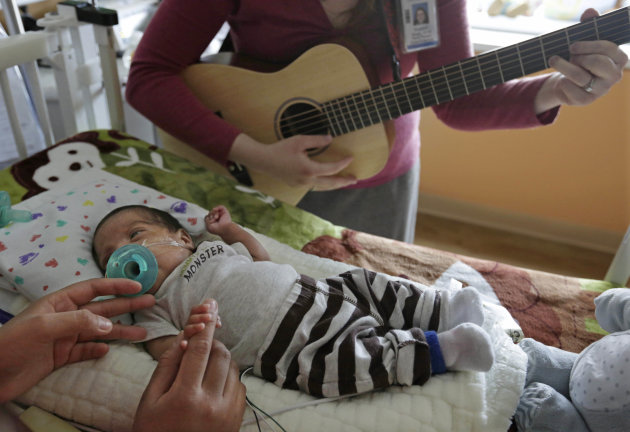Gene for premature birth found...

Premature birth gene 'discovered'
14 April 2011 - Premature birth can be dangerous for the baby
Premature birth gene 'discovered'
14 April 2011 - Premature birth can be dangerous for the baby
A gene linked to premature births has been discovered, scientists in the US and Finland have said. The researchers hope their study, published in PLoS Genetics, could eventually lead to a test for women at risk of a pre-term birth. In the UK, one in 10 babies is born before the 37th week of pregnancy, with potential problems for their health.
The Royal College of Obstetricians and Gynaecologists said it would help to identify a percentage of those at risk. The international team of researchers looked to human evolution in their hunt for genes linked to premature births. In comparison to other primates and mammals, humans have relatively large heads and narrow birth canals.
Acceleration
The researchers, at Vanderbilt University, Washington University and the University of Helsinki, believed there must have been an evolutionary pressure to "adapt and shift the time of birth" to produce a smaller baby. They looked for DNA which showed evidence of "accelerated evolution" - genes which have mutated more in humans than in other primates. They identified 150 genes.
The next step was to look for an association with premature births, so the researchers compared those 150 genes in 328 Finnish mothers, some of whom had premature births. A strong association to pre-term births was found in variants of the FSHR - or follicle stimulating hormone receptor - gene. Follicle stimulating hormone acts on receptors in the ovaries to encourage follicle (a sphere of cells containing an egg) development and production of the hormone oestrogen.
'Greatest risk'




